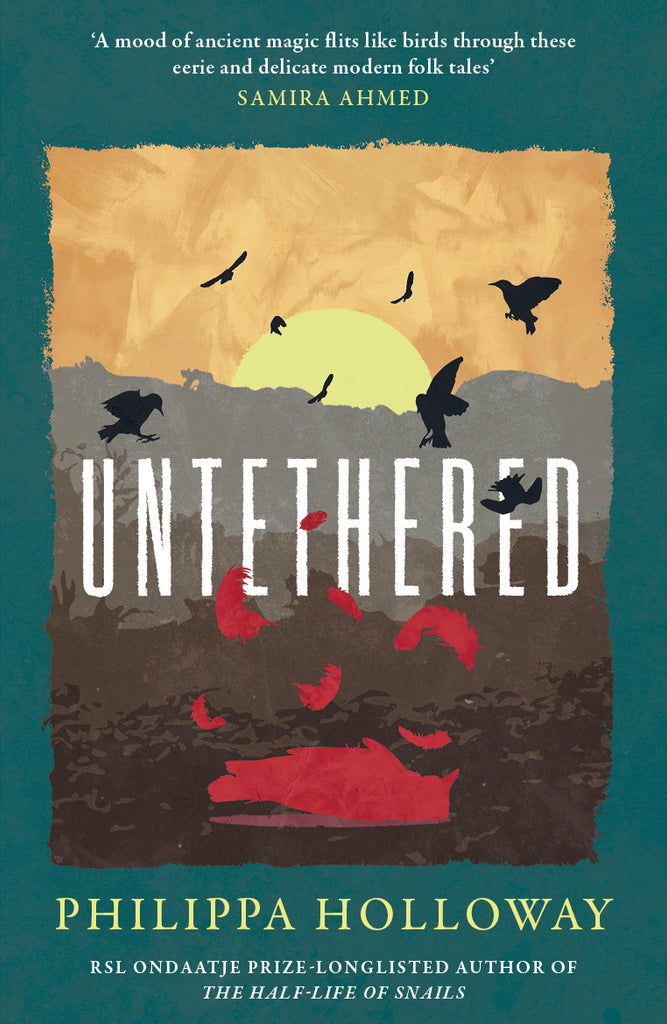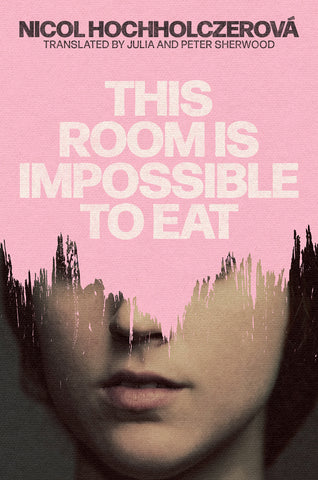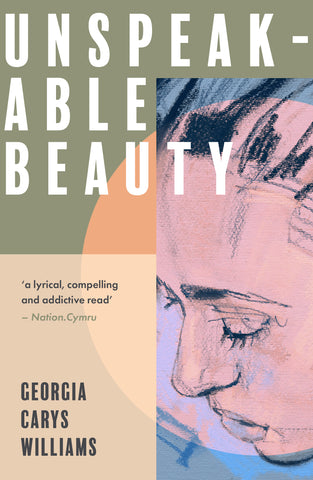We caught up with Philippa Holloway, whose debut short story collection Untethered was published last month, to ask her some questions...

Hi Philippa, and thank you for taking the time to talk to us. What inspired you to write your short story collection Untethered?
Each of the stories in this collection is drawn from an observation, a question, or a concern, and the short story form is the perfect space for exploring these. It can be the smallest spark that sets me going – a shoe abandoned on the side of a road, a news story or headline, a single image. Each represents a moment in time when equilibrium is disturbed, when a reconsideration of self and the world is necessary, and writing short stories has helped me to negotiate an ever more complex world. I use fiction to dig deep into why people are how they are and do what they do, how a small shift in life can unhook us from the tenuous ideas we hold about ourselves and our movement through the world.
Did you have any plans to write Untethered after The Half-life of Snails?

I’ve been working on these stories for years, and so some were written before my novel and some after. I knew I was slowly forming a collection, but the experience gained from writing The Half-life of Snails fuelled rewrites and edits, hard choices over which stories to include and cut, and eventually a clear and concise collection. Returning to writing and editing short fiction after the novel was a joy, a place to play again and dip in and out of lives and ideas, to push my craft in new directions. Capturing a snapshot of a life, a big moment in a few words, is a real challenge, and I’ve loved it.
What books were you reading while you were writing your collection?
It’s hard to say – I read such range of fictions and non-fictions, but contemporary fiction is my great love of the last decade. Clare Fuller, Jenn Ashworth, Maggie Gee, Julia Armfield, Sarah Hall, Maggie O’ Farrell, Carly Holmes, Kevin Barry, Lorrie Moore, Tessa Hadley, Craig Jordan-Baker, Max Porter…too many to list! How much space have you got…? I love fiction that digs deep into the rawness of human experience and doesn’t hold back.
Were there any real-life experiences that inspired your stories?
Each of them carries a tiny seed of real-life inside them, whether from my own experience, a news story, or an observation, but the real thrill of writing fiction is testing out ways a circumstance or situation might unfold, and how different folk might react. That way you can seek out honest and raw humanity – fears, kindnesses, self preservations, tough choice. There are many real places in this collection – my old back garden, a house I once lived in… but each changed as soon as I started writing, and became a fictional space, shaped by and shaping the fictional people there.
Have you ever had to save an animal? What was the experience like?
I’ve lived in the countryside all my life, and worked on farms in the past, so yes. Regardless of where I am though, I will always stop to save/help an animal or person in distress if I can. I regularly pause to move worms or snails off the pavement, and have rescued numerous gulls and pigeons, or taken beached sea-life like starfish and crabs back to the tide. I feel that by respecting and caring for all elements of life, having empathy regardless of a living being’s status, life is richer and connected. We are not separate from nature, we are part of it.
In ‘Un/Determined’ why did you decide to tell the story in a second-person perspective?
If used sparingly and carefully 2nd person narrative voices can be really unsettling and intimate. For this story I wanted the reader to feel the physicality of a post-birth body, and the discomfort that both a post-partum mother experiences in a hospital and the situation the couple find themselves in when their child is born of indeterminate sex. It’s a story that is meant to highlight the complexities of parenthood by putting them in a rare and almost impossible situation. Whatever they choose to do has potentially catastrophic consequences – everyone can relate to that, regardless of their own situations.
Do you feel that unexpected events are important for people to experience?
They are inevitable, and often pivotal. We learn from how we react or respond to them, and fiction enables us to test out scenarios, read or write to discover ways of coping, of surviving or thriving. Nothing is still, life is constant change, so being able to imagine and experience disparate lives and circumstances is a vital part of being human.
In ‘A Sudden Rush of Air’ is the pigeon an allegory for Kate’s relationship?
Well, that’s up to the reader to decide! Maybe it’s an allegory for her herself, or for the homeless people affected by the housing crisis and cruel town-planning, or for her partner… the reader can find their own meaning in there, I trust them to do that!
Were you inspired by a kitchen you once had when describing the kitchen in ‘Handprints’?
I am drawn to ‘real’ kitchens, those lovely, lived-in, messy human spaces, intimate and full of life and movement and conversations. There are a lot of kitchens and meals in this book, and each is carefully crafted for the characters and their own lives. This one is a family kitchen, two small children, a single parent. It’s not mine, it’s the character’s, but I do pay attention to place carefully in my writing – always observing, never judging.
Is there a meaning behind Jack Daw bringing the teeth as a gift in ‘Seven Teeth’?
Jackdaws and other corvids often bring scavenged gifts to those who help them, and can bond with humans through routine and proximity. These stories often explore the relationship between humans and nature, critiquing the way we choose to distance ourselves or live in ways where we don’t even notice the variety and richness of the natural world around us. I chose to focus on moments where that distance is reduced, or where intimacy occurs, and birds are a strong theme in this collection, representing many of the cruel or tender ways we engage with nature. Jack Daw’s gifts help to bring two similar people together, in a world that increasingly wants us to be fully separated from nature.
When did you notice the thematic link between all your short stories in this collection?
Crafting a collection is hard work. Arguably, most of my stories have similar themes, but some work in different modes (Gothic, Magic Realism, Horror for example). Each of the stories in Untethered is Realist, but deciding which worked together thematically was a careful process and I’m grateful to my husband, friends and my wonderful editor at Parthian for helping me to decide!
What inspired you to name the collection Untethered?
I think most people have a relatively secure sense of self and place, and can rely on that as our solid ground, our comfort. But when circumstances challenge us, we need to reassess. Each of the characters in this collection has either been forcefully untethered by unforeseen events and made to reconsider who they are and where to go next, or has found that they need to untether themselves from something or someone to move on. These moments can be small and domestic, internalised, or more drastic. Either way, they act as turning points for each and every one of them.
Untethered is available now, from your favourite bookshop or right here on the Parthian website!




